

Did you know the car leasing market is experiencing a seismic shift? It's poised to grow exponentially, and the reasons are more fascinating than you might think.
In today's economy, leasing is gaining traction over buying. Understanding why this trend is booming could save you thousands. Ready to learn how you can benefit?
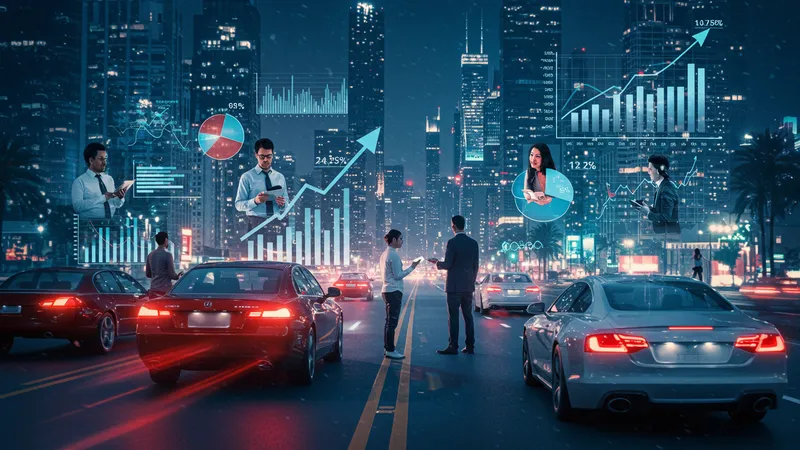
Leasing a car might seem counterintuitive in an age of ownership, but the market is saying otherwise. More people are gravitating towards leasing due to lower initial costs and no depreciation worries. It’s a relief from the traditional burdens of ownership. But that’s not even the wildest part…
Consumer preferences are shifting drastically. Younger generations value flexibility over possessions. The rise of subscription models, and environmentally conscious decisions are key driving forces. This transformation is setting the stage for an era where car leasing becomes a norm. But what does this mean for traditional car dealerships? The answers might surprise you...
What happens next shocked even the experts as new trends are rewriting the rules of car ownership forever...
While leasing a car comes with its conveniences, there’s a network of hidden costs that often catch consumers off guard. From early termination fees to mileage penalties, leasing isn’t just a carefree ride. Many are hooked by the prospect of lower monthly payments, unaware of the strings attached. This lack of understanding could derail financial plans for the unprepared. But there’s one more twist…
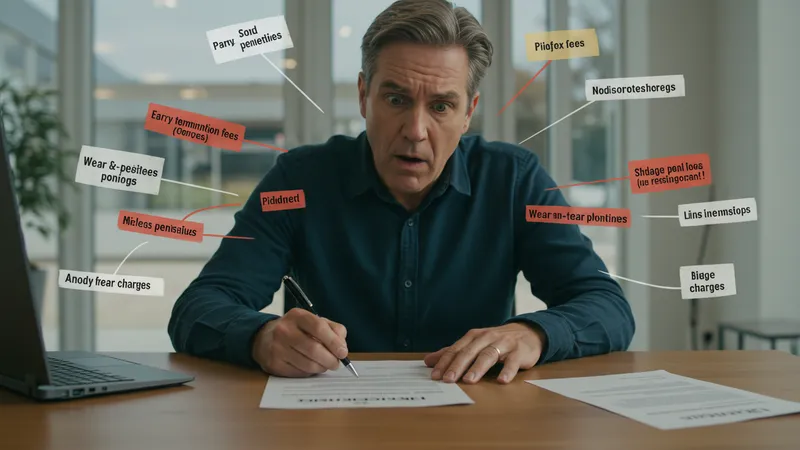
Maintenance and wear-and-tear clauses can inflate costs unexpectedly. Although leasing might relieve the initial financial burden, returning a car with even minor damages can result in hefty charges. It’s crucial to know the nitty-gritty details of what you’re signing up for. These can vary widely among different leasing companies. But what you read next might change how you see this forever.
One significant worry is the insurance aspect. Leased cars usually require full-coverage insurance, which can be more costly than the insurance needed for owned vehicles. The perception of leasing as a cheaper option gradually fades as these extra costs accumulate. However, there’s a surprising strategy that savvy lessees can employ to minimize these expenses.
In certain scenarios, a well-negotiated lease can indeed be beneficial. Companies like BMW offer unique solutions that mitigate some of these costs, especially for loyal customers. When combined with other flexible options, these can create a more sustainable and cost-effective solution. But there's a twist in how these deals are structured that every potential lessee should know about...
The role of technology in steering the car leasing market towards unprecedented growth is unparalleled. Digital leasing platforms are making the process smoother and more transparent. A customer can now compare multiple leasing options with just a few clicks — something that was impossible a decade ago. But this convenience also opens the door to unexpected issues.

Automated valuation systems mean cars are often appraised differently than traditional methods, affecting residual values and ultimately the cost of a lease. While this can sometimes work to a customer's advantage, it often throws a wrench in the expected cost savings. There's more to this technological evolution that might not meet the eye.
Car manufacturers are embedding cutting-edge tech into their vehicles, from self-driving capabilities to AI-driven systems. These advancements are attractive to lessees who want to enjoy the latest innovations without long-term commitments. However, this creates a shifting landscape of what’s considered ‘valuable’ in a vehicle. What used to be premium features are now standard, impacting lease terms profoundly.
Moreover, technology is paving the way for the rise of electric vehicles in leasing markets. Companies like Tesla are setting new benchmarks with their electric fleets. Leases on electric vehicles have different considerations, such as battery life and charging infrastructure. Surprisingly, this transformation holds untapped potential and hurdles you might not expect in the coming pages...
Millennials and Gen Z are reshaping the car leasing narrative. These generations prioritize experiences over possessions, leading to the preference for leasing over buying. They’re drawn to the flexibility leasing offers—it’s a lifestyle choice rather than a financial one. But what lies beneath this shift might be more complex than it seems.
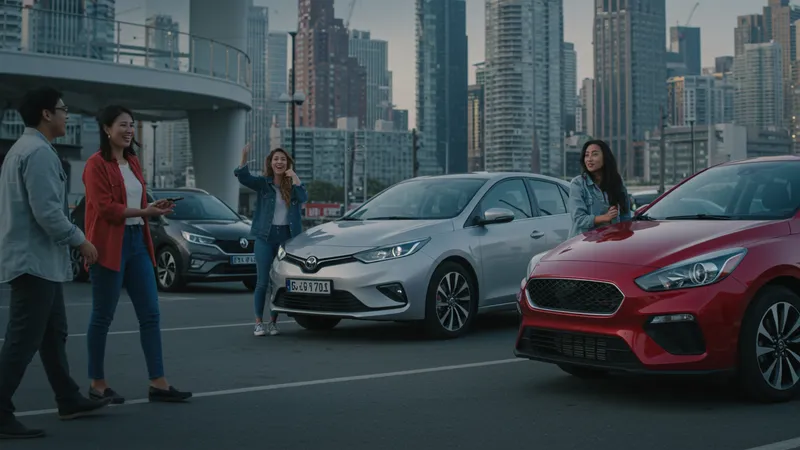
Environmental consciousness plays a significant role. These generations value sustainable practices, and leasing hybrid or electric vehicles aligns with their eco-friendly values. The decreasing attachment to ownership is not just about finances but also about reducing carbon footprints. This presents an intriguing divergence from the norms set by previous generations.
Social media influence cannot be understated in this trend. With influencers often showcasing the newest leased vehicles, the appeal of changing cars every few years has a strong pull. It satisfies the desire for major lifestyle updates without the commitment of ownership. But what’s the hidden caveat in this seemingly perfect scenario?
Despite their enthusiasm for leasing, these younger generations face unexpected challenges. Credit requirements and employment stability play significant roles in lease approvals. Although leasing provides a facade of affordability, there’s a deeper financial consideration that could quickly become a hindrance. What you uncover next about financial dynamics could be an eye-opener...
The global economy is a significant force behind the surge in car leasing popularity. Economic uncertainties and fluctuating markets encourage consumers to avoid long-term debt. Leasing offers a buffer—a flexible solution amid volatility. But how resilient is this model when the economic tides shift dramatically?

Interest rates and currency exchange rates can dramatically affect leasing terms. A volatile global market can lead leasing companies to adjust their prices swiftly, often leaving consumers in unpredictable situations. The leasing industry is delicately tied to economic health, and these connections can become unexpectedly turbulent.
Additionally, international trade agreements and tariffs are influencing car prices, subsequently affecting leasing terms. An increase in tariffs could result in higher fees for importing vehicles, impacting how leasing companies set their prices. This precarious balance is crucial to understanding the true cost and convenience of leasing.
Despite these factors, car leasing continues to flourish globally, fueled by the global automaker collaborations and shared platforms. Manufacturers are joining forces to create efficient, shared technologies. This cooperation is shaping the leasing landscape in unforeseen ways, setting the scene for what comes next...
The cultural attitudes towards vehicle ownership have experienced a seismic shift. The concept of sharing versus owning is redefining the global automotive landscape. This has seen a proliferation of companies offering car-sharing services as an alternative to traditional leasing and ownership.
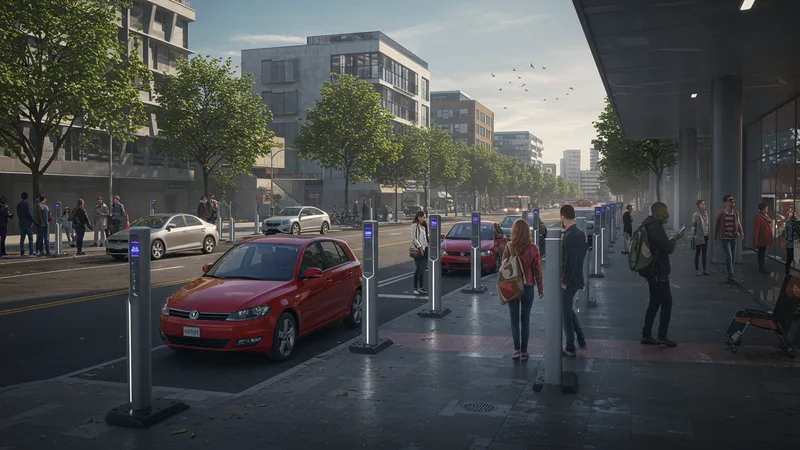
This cultural shift goes beyond consumer choices—it’s reshaping the urban infrastructure itself. City planners are now considering the implications of reduced personal car ownership on traffic flow and public transport. This ripple effect is an intriguing evolution, combining technology, social behavior, and civic planning.
Additionally, this shift divides generational lines, creating a dynamic tension between traditional drivers who value ownership and the younger, more flexible leasers. Car dealerships are pivoting their business models to adapt to this growing demand for leasing and sharing. The strategies they're employing might surprise you.
The leasing model is not just adapting but thriving due to its eco and economically conscious appeal. The narrative surrounding vehicle ownership is undergoing a fundamental transformation. What lies ahead in this unfolding story might change everything you thought you knew about the future of transportation...
The ongoing debate between leasing and buying a car has more layers than you might anticipate. While owning a vehicle provides long-term security, leasing offers short-term flexibility. But where does the true value lie in this debate, and what should consumers be wary of?
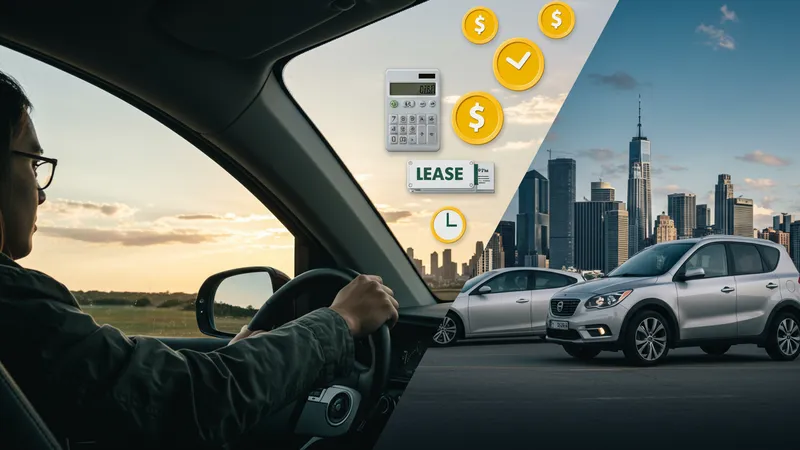
One critical aspect often overlooked is the financial impact over time. Leasing might seem economical initially, but the cumulative effect of continued leasing can outweigh the cost of buying. This conversation requires a deep dive into the psychology behind these decisions.
The appeal of having the latest car models without commitment entices many into leasing. However, the reality of perpetual payments without ownership might lead some to reconsider. This simple, yet crucial, understanding can tip the scales in favor of buying for those seeking stability.
For those who can balance both sides of the coin, certain hybrid approaches exist. Programs that converge ownership and leasing benefits are gaining traction. These models blend the financial advantages of leasing with the emotional security of ownership. What you discover about these innovative solutions might just redefine your approach to car economics...
The rise of electric vehicles (EVs) is revolutionizing the leasing market. As more consumers embrace sustainable transportation, leasing companies are expanding their electric offerings. The perks of leasing an EV go far beyond environmental benefits.
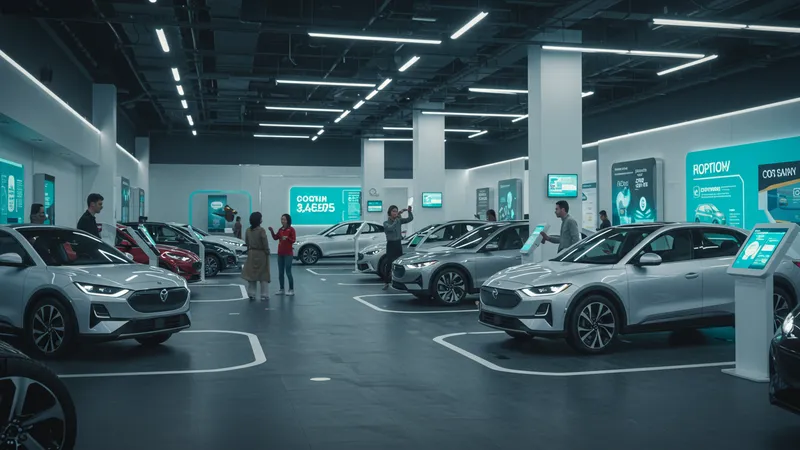
Consumers are drawn to the lower running costs of EVs, which include fewer mechanical issues and cheaper energy consumption compared to traditional fuel. This transition is a dream for those conscious of both their budget and their carbon footprint. But what about the hidden complexities surrounding EV leasing?
Battery life and charging infrastructure are pivotal concerns for prospective EV lessees. The advancements in these areas are growing rapidly, providing more confidence in leasing electric vehicles. However, navigating these evolving issues demands a keen eye on new technological developments.
The incentives offered for leasing EVs cannot be overlooked. Both government subsidies and corporate incentives can significantly lower initial costs. But there's a bigger picture here—how this innovation is altering the leasing market might surprise even the most seasoned observers...
The COVID-19 pandemic has had profound effects on car leasing trends. As more people work from home and travel less, the need for personal vehicles has shifted. Leasing, rather than owning, became a more appealing option in a world of ongoing uncertainty.

Dealerships quickly adapted to the ‘new normal,’ embracing digital platforms and enhancing home delivery options to continue business during lockdowns. These innovations have permanently altered consumer expectations of leasing, creating a more seamless and convenient process.
The economic ramifications of the pandemic also pushed many towards leasing, providing financial flexibility. For those with uncertain job prospects, avoiding the commitment of ownership is a significant relief. But the post-pandemic recovery phase introduces fresh dynamics in consumer behavior.
As things stabilize, the leasing market continues to adjust. New models and innovative plans are emerging to cater to the shifting needs and habits shaped by the pandemic. What you learn about the future trajectory of car leasing in this context is bound to challenge preconceived notions...
The future of car leasing is nothing short of exhilarating, as the market evolves in response to cultural and technological shifts. Autonomous vehicles and AI are not far from becoming mainstream, and this will redefine the leasing landscape dramatically.
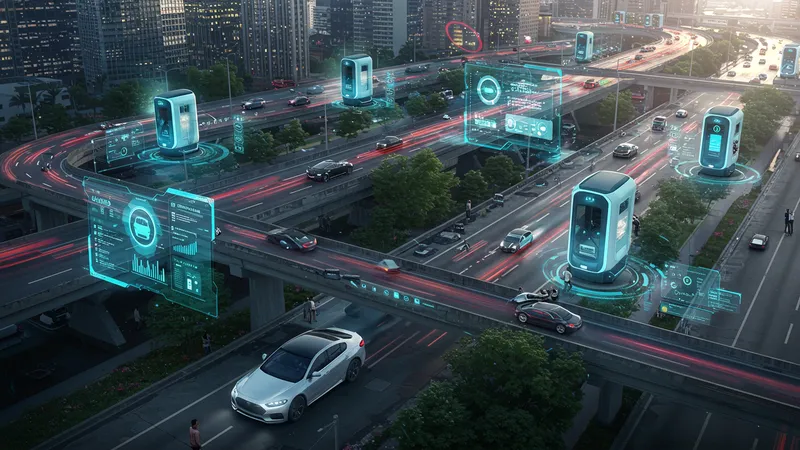
The collaborative economy and shared vehicle models are gaining momentum, creating new opportunities for both consumers and providers. The merging of tech and automotive industries offers a fertile ground for innovation. But, these exciting changes also bring unforeseen challenges.
The integration of blockchain technology stands to revolutionize how leases are documented and managed, introducing unprecedented transparency and security. For the wary consumer, understanding these advancements holds the key to a more informed leasing journey.
The endpoint of this ongoing transformation might be closer than we think. What you’re about to delve into next could forever alter your perception of what leasing means in a futuristic world. What comes next will redefine the very essence of how we view vehicle access and ownership...
Environmental awareness plays a significant role in why leasing is becoming a preferred option. The climate crisis has accelerated the shift towards more sustainable choices, and car leasing is at the forefront of this revolution.
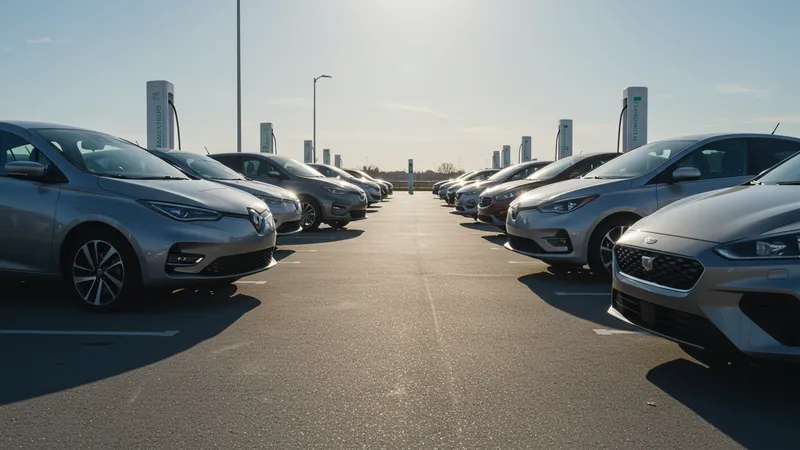
Leasing aligns perfectly with the growing trend of eco-friendly practices. Electric and hybrid vehicle options are increasingly available, allowing consumers to reduce their carbon footprints without long-term commitments. But this shift goes beyond potential environmental benefits.
Many leasing companies are launching programs committed to sustainable practices, such as carbon offset schemes and utilizing renewable energy sources. These initiatives provide lessees with the power to make environmentally conscious choices at every step of their leasing journey.
The widespread adoption of these practices is more impactful than initially realized. What emerges from understanding this narrative is a compelling case for how car leasing could become essential in achieving global environmental goals. But not everyone is aware of the potential obstacles in this path...
Car manufacturers are keenly innovating to meet the burgeoning demand for leasing options. The traditional sales model is rapidly evolving, with automakers exploring new avenues to cater more effectively to a leasing-centric consumer base.
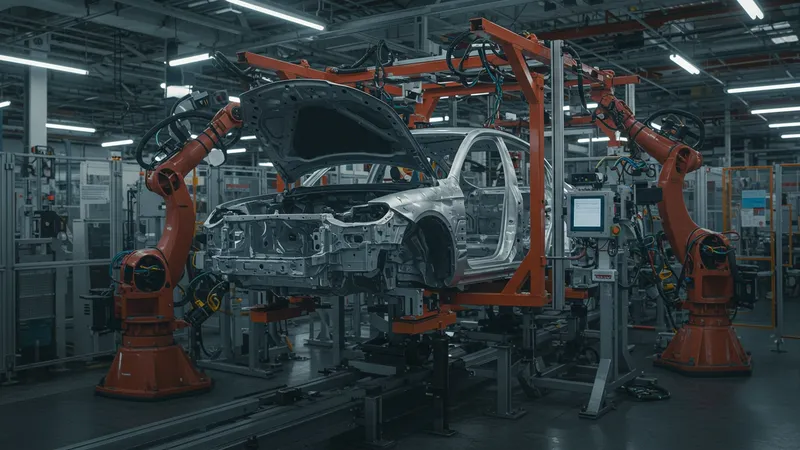
These innovations include developing modular platforms that allow easier updates and customization in vehicles leased for shorter terms. This approach not only satisfies consumer desire for the latest tech but also reduces the environmental impact through more efficient production.
Manufacturers are also investing heavily in electric and autonomous vehicle technologies to cater to the shifting market demand. This is fostering a collaborative environment where industry players combine efforts for groundbreaking advancements in leasing solutions.
The pace at which these changes are happening suggests a future where leasing could become the dominant model for vehicle ownership. The thrilling developments in this space signal a departure from tradition that could transform the industry as we know it. What follows next could reshape the entire landscape of how we approach driving...
The popularity of the leasing model is expanding beyond cars, influencing other industries in intriguing ways. This trend reveals a growing consumer preference for access over ownership in various domains.
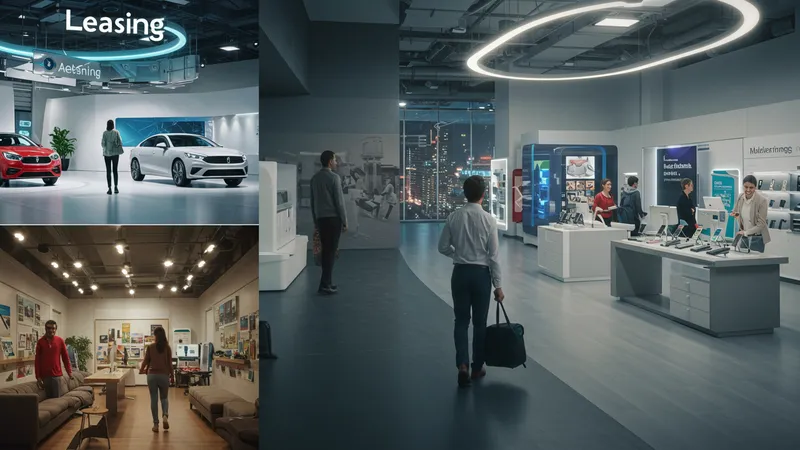
From electronics to furniture, companies are adopting the leasing concept to provide consumers with the latest products at a fraction of the buying cost. This shift opens a vast array of possibilities, offering newfound flexibility and sustainability.
Such expansion poses unique challenges, as companies must navigate contractual complexities and manage short-term consumer relationships effectively. The lessons learned from car leasing provide valuable insights, yet the broader application demands an innovative approach.
The ramifications of this leasing expansion could reshape consumer habits on a global scale. As leasing becomes more embedded in our lifestyle, the way we value purchases is bound to change. What you discover in the remainder of this journey could be the catalyst that sparks a deeper understanding of this evolving trend...
As the evolution of car leasing continues, industry experts are offering thought-provoking predictions about its future. They anticipate leasing to dominate the automotive market, with the model becoming far more sophisticated and diverse.
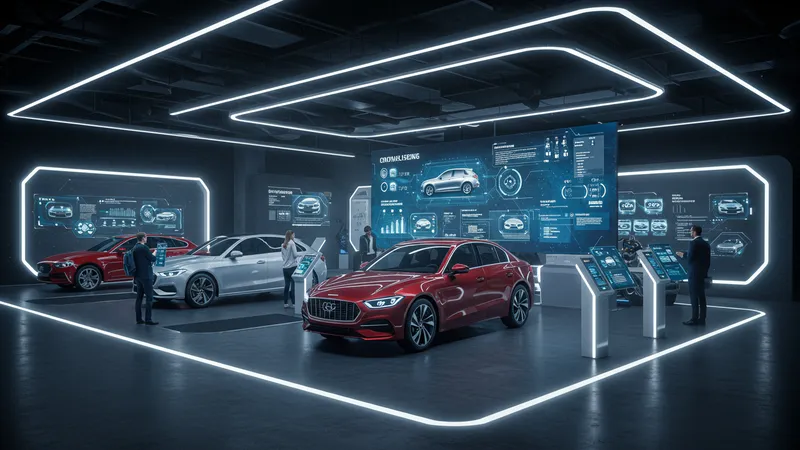
Incorporating automated processes and AI-driven insights, leasing could become an exceedingly personalized experience. Customers may soon have a say in everything from design to technology features. The question is, how quickly can the industry adapt to these demands?
Global economic shifts, environmental considerations, and technological advancements are expected to set unprecedented standards for leasing models. Experts foresee a world where leases go beyond simple contracts to become comprehensive service packages.
The outlook is undoubtedly optimistic, yet it’s not without its hurdles. The way these challenges are navigated will determine the ultimate success of the leasing phenomenon. Discovering the depths of these expert predictions could alter your expectations on the future of transportation...
Amidst all these transformations, one lingering question persists: Will leasing ultimately replace owning altogether? This provocative idea challenges the very core of traditional vehicle acquisition and ownership ethics.
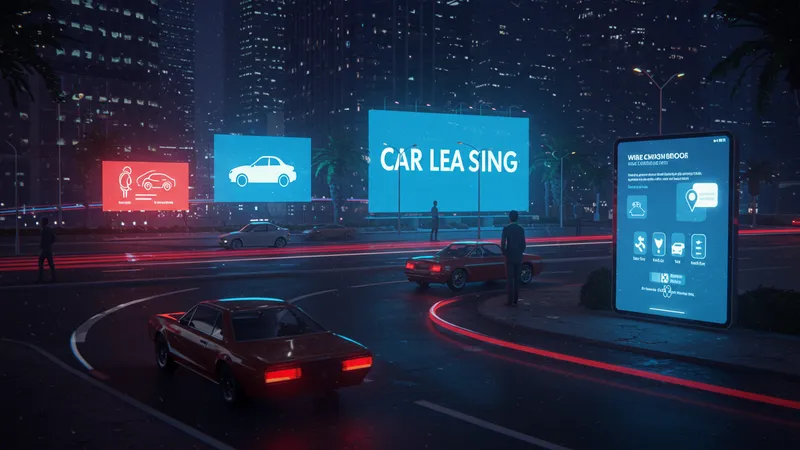
As leasing becomes more entrenched in consumer culture, its benefits grow increasingly hard to ignore. The transition from ownership to access-centric models appears both seamless and inevitable. But is this truly the future we’re heading towards?
The answer lies in ongoing innovations, consumer preferences, and the adaptability of automakers and leasing companies in this rapidly evolving landscape. Each player holds pivotal importance in shaping the outcome.
The narrative of leasing as a new norm is captivating. Understanding whether this will indeed surpass ownership in the long run requires examining every angle. How you interpret this compelling story could be the key to embracing the shift toward a leasing-dominated future...
The car leasing market is on an exhilarating journey, poised to redefine our relationship with vehicles. The evolutionary forces at play suggest an outcome that's both unexpected and transformative. As we stand at this crossroads, one thing is clear: The decisions we make today could propel leasing into the forefront of the automotive world. Share this story, bookmark your favorite revelations, and join the conversation on how leasing might shape our future experiences.